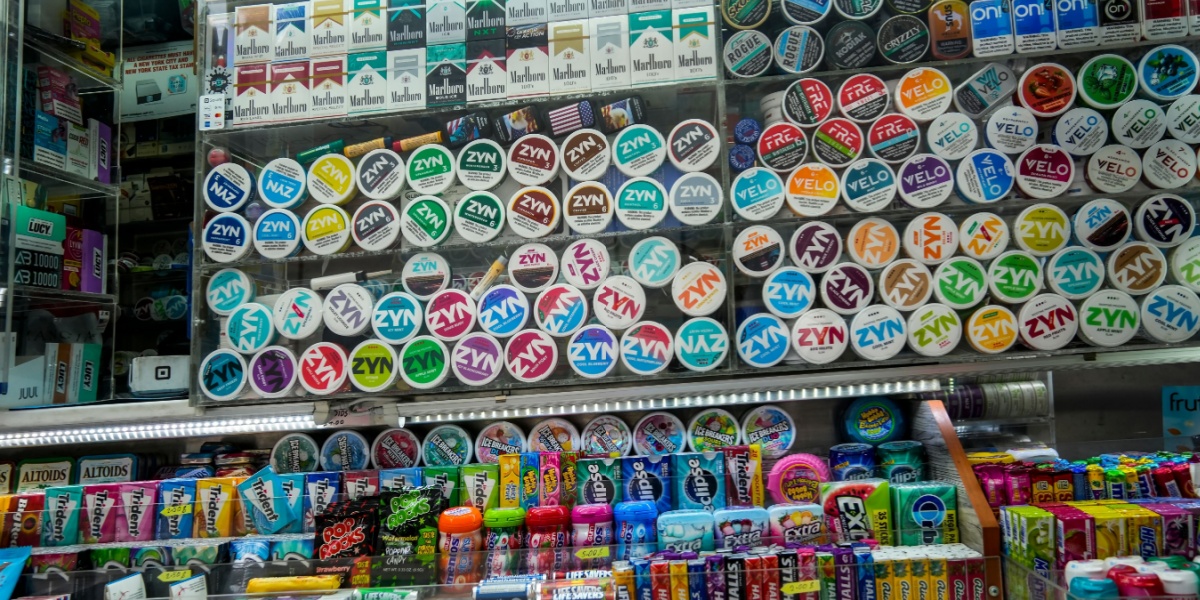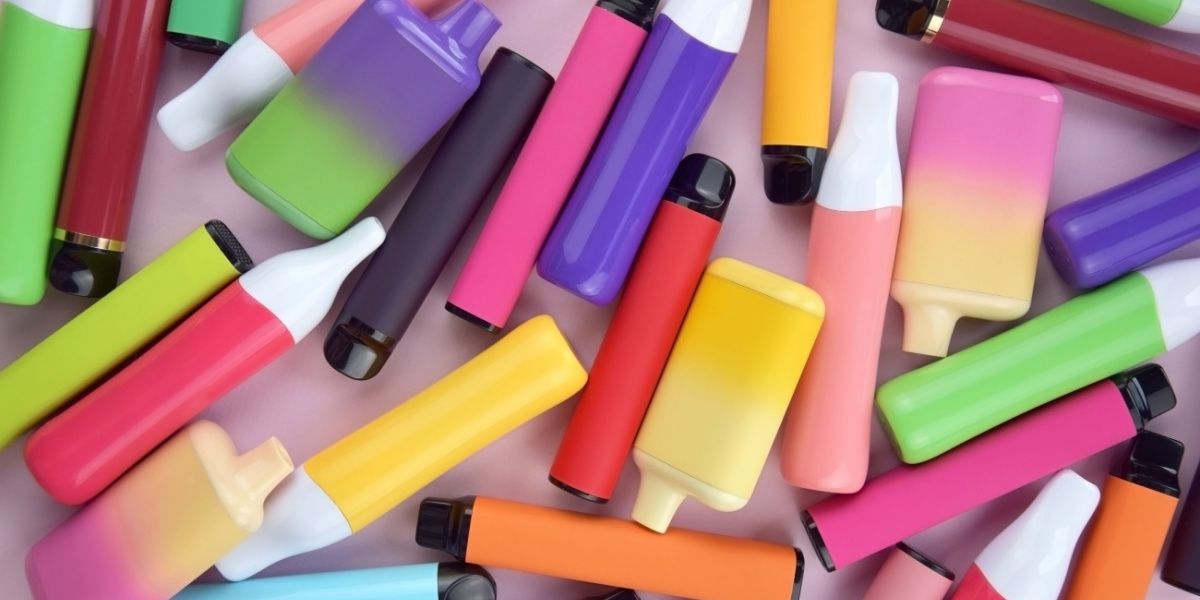Zyn and other nicotine pouches have exploded in popularity as smoke-free alternatives to cigarettes. In just a few years, U.S. sales soared from 126 million in 2019 to over 800 million by early 2022, with Zyn leading the pack. [1] Sleek, flavored, and often featured in viral social media posts, these pouches are quickly becoming a go-to nicotine fix for a new generation. [2]

What are ZYN nicotine pouches?
A Zyn pouch is a small packet of tobacco-free nicotine that you place between your lip and gum. It contains pure nicotine (usually in a salt form) along with flavorings and other additives. The nicotine then dissolves and is absorbed through the mouth lining. [3]
The FDA describes these as “small synthetic fiber pouches containing nicotine”. [4] Zyn pouches come in set strengths (commonly 3 mg or 6 mg per pouch). [5] Because they contain no tobacco or smoke, Zyn pouches avoid the tar and toxins of cigarettes. They deliver nicotine directly to the bloodstream through the gum, similar to nicotine gum or snus, but without any tobacco leaf. [6]
What's inside a ZYN?
Each Zyn pouch contains nicotine plus neutral fillers. One analysis notes that oral nicotine pouches are “composed of nicotine (usually synthetic) … and mostly flavored products”. [3] The pouch itself is made of plant-based or synthetic fiber (similar to the base in nicotine gum). [4] Manufacturers add flavorings (mint, fruit, coffee, etc.), sweeteners, and mild alkalizing salts to help the nicotine absorb. Importantly, no tobacco leaf is present. [6]
A Zyn pouch is basically a dose of nicotine (3–6 mg, depending on the version) plus harmless food-grade additives, delivered in a small fiber packet.
Are ZYNs bad for you? Health risks associated with ZYN use
Health authorities emphasize that “there are no safe tobacco products, including nicotine pouches”. [1] In other words, any nicotine product carries some risk. Zyn’s risks come chiefly from the nicotine. In the short term, using Zyn often causes nicotine side effects: nausea, vomiting, headache, dizziness, and a racing heartbeat. [7]
High doses (for example, swallowing pouches or using many at once) can even cause nicotine poisoning with severe vomiting or seizures. [7] Using or swallowing about ten 6-mg Zyn pouches in quick succession (≈ 60 mg nicotine absorbed) can trigger nicotine poisoning; seizures are rare but documented. Zyn’s own label warns that people with heart disease or high blood pressure should not use it. [8]
Over time, nicotine strains the cardiovascular system and the brain. It raises blood pressure and constricts arteries, which can contribute to heart attacks or strokes. [9] Nicotine also harms the developing brain, affecting attention, memory, and, to some extent, impulse control. [1]
Zyn avoids nearly all the carcinogens found in cigarettes — FDA tests show it has ‘substantially lower amounts of harmful constituents’ than cigarette smoke. [10] But avoiding smoke doesn’t make nicotine harmless. Nicotine itself still poses real health risks for users.
Addiction and dependency risks
Nicotine is highly addictive [1], and Zyn can deliver doses comparable to a cigarette. Studies find some nicotine pouches give “incredibly high amounts” of nicotine. [3] In practice, regular Zyn users often need multiple pouches a day to satisfy cravings, and withdrawal symptoms (irritability, difficulty concentrating, etc.) appear if they stop.
Using Zyn carries essentially the same addiction risk as other nicotine products. [1] The body doesn’t know the nicotine came from a pouch instead of a smoke – dependence can form just as quickly.
Social and cultural impact
Zyn’s popularity has sparked social debate. Because they make no smoke, many users treat pouches like candy or gum – “tucking a pouch” even indoors without anyone noticing. [2] Critics worry this renormalizes nicotine use in everyday settings. The product’s sweet, minty, and fruity flavors have drawn scrutiny. For example, the Campaign for Tobacco-Free Kids pointed out that flavors like mint and fruit “clearly appeal to kids”. [6]
In politics and media, Zyn has been a flashpoint: U.S. Senator Chuck Schumer famously warned that Zyn is a “pouch packed with problems” aimed at teenagers. [5]
Regulators have taken note. Nicotine pouches are now regulated as tobacco products, and the FDA has sent warning letters to stores selling Zyn to underage customers. [3] While adult users often call Zyn a clever nicotine alternative, public health experts stress that any youth nicotine use is dangerous. In fact, surveys report that under 2% of U.S. teens currently use nicotine pouches, but officials emphasize that even this small number is concerning. [1]
Impact on youth and brain development
No teen or young adult’s brain needs nicotine. Scientists warn that nicotine can damage an adolescent’s developing brain, which controls attention, learning, mood, and impulse control. [11] New data show nicotine pouches are reaching youth: about 1.8% of U.S. middle- and high-school students report current pouch use. [1]
Health authorities uniformly advise that no teenager or pregnant woman should use Zyn or any nicotine product. [1] Early nicotine use can prime the brain for stronger addiction later on, making these youth more vulnerable to nicotine dependency and other substance use as adults. [12]
Are ZYNs safer than smoking or other nicotine products?
Most experts agree Zyn pouches are less harmful than cigarettes, but that doesn’t mean they’re safe. Because pouches contain no tobacco or combustion, they eliminate nearly all smoke toxins. As mentioned, the FDA found Zyn products have “substantially lower amounts of harmful constituents” than cigarettes [4], and journalists note they have “fewer harmful chemicals than cigarettes”. [10]
In other words, a person who completely switches from smoking to Zyn would greatly reduce exposure to cancer-causing chemicals.
However, less harmful is not harmless. Nicotine itself, as pointed out, still raises heart and blood pressure risk. [9] One cardiologist told reporters Zyn is “certainly a different evil” – even if it cuts out smoke, it still fosters a strong addiction. [8]
Zyn is not approved for smoking cessation and has not undergone clinical testing as a quit aid, unlike nicotine patches or gum. And its candy-like flavors and ease of use may, in fact, make quitting harder. [13] Like vaping, Zyn delivers nicotine without smoke, but each exposes users to different chemicals. Neither is risk-free.
Therefore, for a long-time smoker, switching completely to Zyn likely reduces many health risks. [4][8] But for someone who doesn’t smoke, starting Zyn adds new harms (addiction, heart strain, etc.) with no benefit. No health authority endorses Zyn as “safe” for non-smokers; at best, it is a harm-reduction tool for adult smokers, not a benign product on its own.
How to quit using ZYN nicotine pouches
Quitting nicotine is challenging, but effective help is available. Consider these steps:
- Use FDA-approved quit aids. Nicotine patches, gum, or lozenges and prescription pills (like bupropion or varenicline) are proven to help people quit. The CDC notes these treatments “are safe to use” and, combined with counseling, can more than double a smoker’s chances of quitting. [1]
- Seek support. Counseling and support greatly improve success. Call 1-800-QUIT-NOW for free, 24/7 coaching. [14] Many states offer quitline counselors and text-message programs. Joining a support group or enlisting friends and family can also help you stay on track.
- Make a quit plan. Choose a quit date and remove all Zyn pouches and reminders from your environment. Identify your triggers (stress, after meals, social situations) and plan healthy substitutes (drink water, chew sugar-free gum, take a walk). Set small goals and reward yourself for each pouch-free day.
- Manage cravings. When an urge hits, wait and breathe deeply for a few minutes – cravings usually peak and then fade. Try a brief walk or a tasty low-calorie snack. Remember that withdrawal symptoms (irritability, restlessness) peak within a week and then ease. If you slip and use a pouch, don’t get discouraged: note what led to it, and renew your commitment to quitting.
Additional help is available. Smokefree.gov and many quit programs offer free online tools and apps. With persistence and help, most people can break free from nicotine dependence. If you’re thinking about switching to or quitting Zyn, talk with a healthcare professional for personalized advice.


-blog-detail.jpg?v=1723557318)

